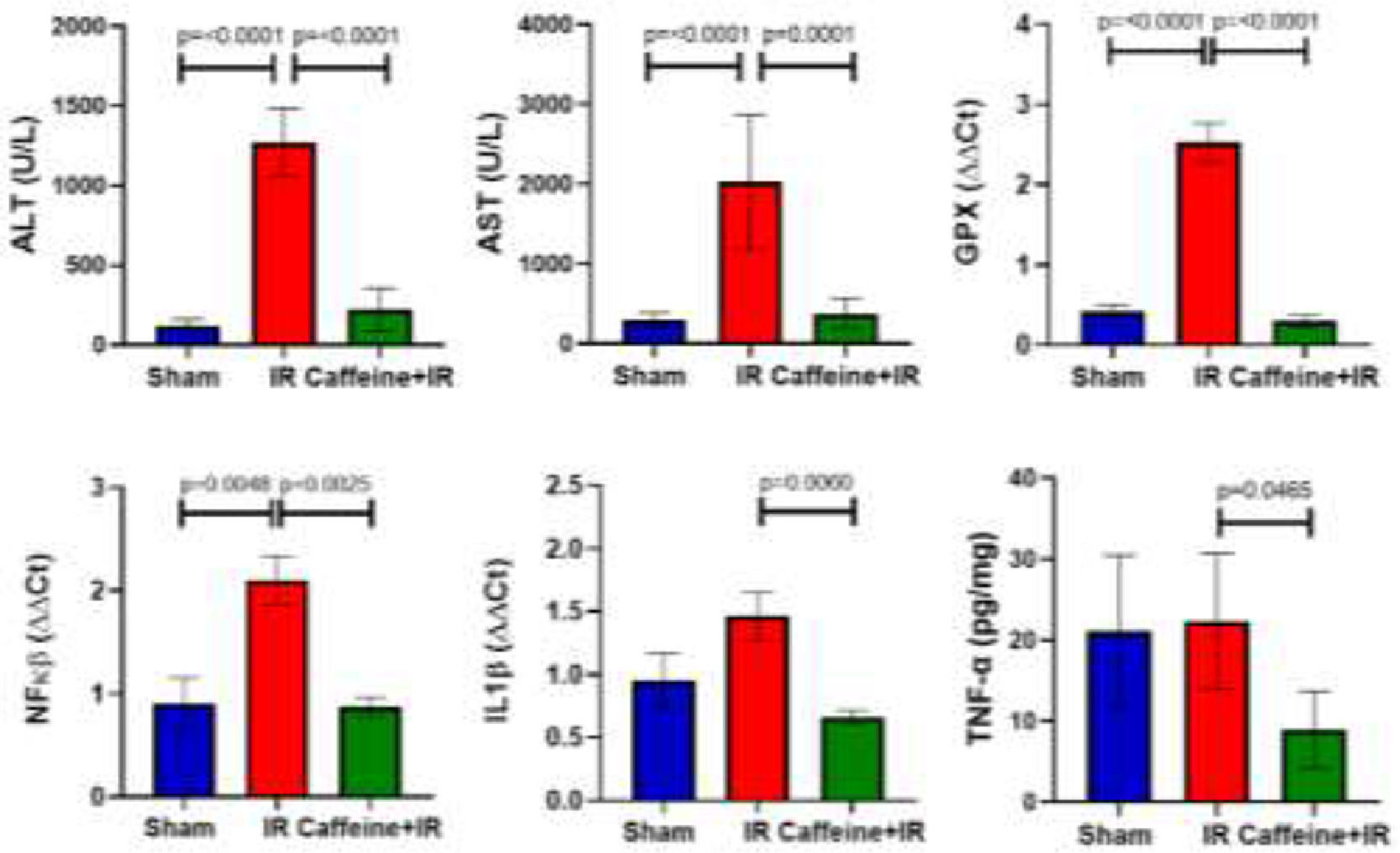
Abstracts from XVII Mexican Congress of Hepatology
More infoThis study aimed to determine the hepatoprotective effect of caffeine against Ischemia-Reperfusion (IR) damage in Wistar rats.
Material and methodsEighteen female Wistar rats were divided into three groups (Sham, IR, Caffeine+IR, n=6). Hepatic ischemia was induced at 70% with 1 and 2 hours of reperfusion. The vehicle (saline solution) or 20 mg/kg of caffeine was administered before the induction of IR. The hepatoprotective effect was evaluated with biochemical markers, relative expression of genes associated with oxidative stress and inflammation, proinflammatory cytokines, and histology. The trial was approved by the research ethics committee.
ResultsCaffeine significantly reduced levels of ALT, AST and direct bilirubin vs. IR group. Regarding the relative expression of genes, a significant decrease in the expression of the GPX, NF-κβ and IL-1β genes was observed in the group treated with caffeine, while there was a decrease in the concentrations of IL-Iß, IL -6 and TNF-α; however, only TNF- α had a significant decrease. No histological changes were observed in the study groups
DiscussionCaffeine treatment was shown to have a hepatoprotective effect against IR injury, possibly because it is a non-selective antagonist of the adenosine receptor. It has previously been shown that, in the liver, an extracellular increase in adenosine followed by its binding to its A2 receptor, serves to signal an increase in nitric oxide synthesis, which was associated with a cytoprotective effect against IR injury.
ConclusionsCaffeine was shown to have a hepatoprotective effect against IR liver injury
FundingThe resources used in this study were from the hospital without any additional financing
Declaration of interestThe authors declare no potential conflicts of interest.










